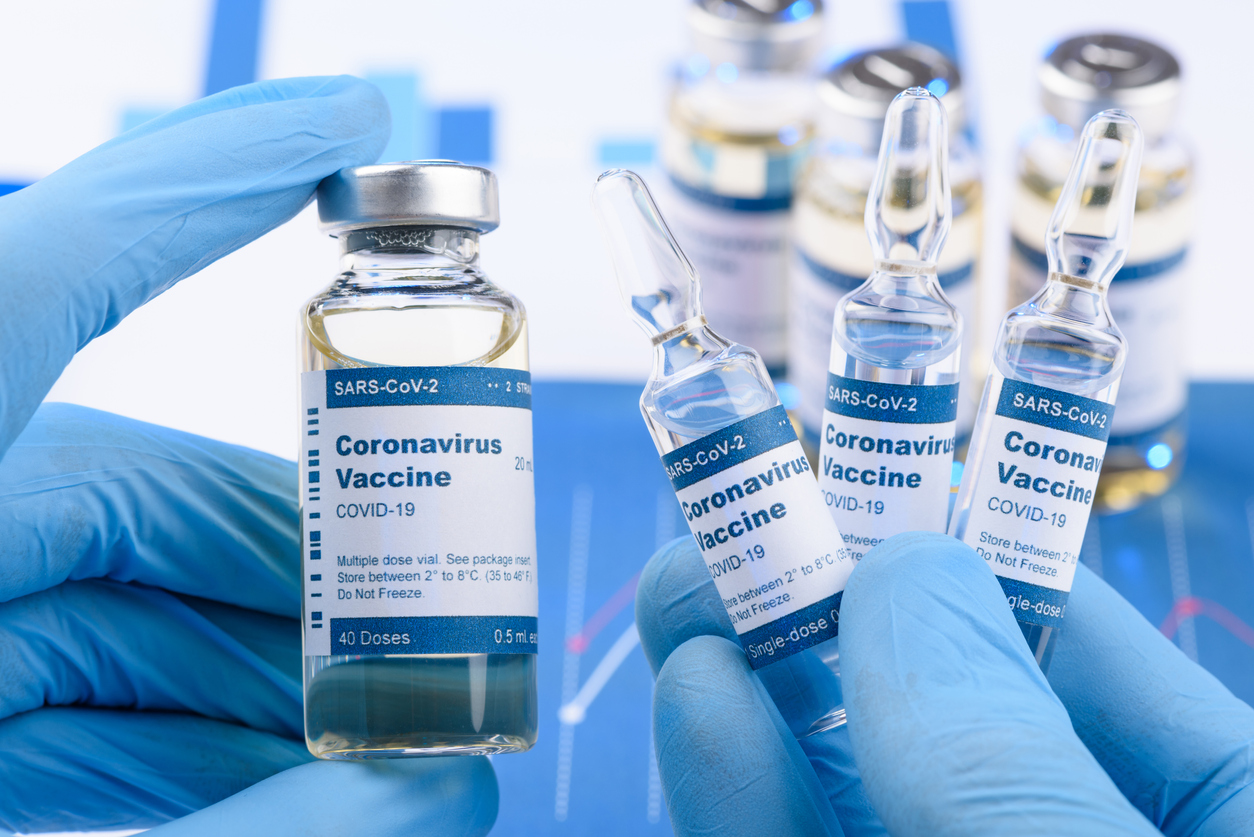Senior administration officials said the federal government is working to purchase an additional 100 million doses each of the Pfizer Inc. and Moderna Inc. vaccines, increasing the total U.S. vaccine order by 50% to 600 million from 400 million. Officials said they expect the additional doses to be delivered over the summer.
The purchases will provide enough supply to vaccinate 300 million Americans in a two-dose regimen over the summer.
Even with the increase in doses to states starting next week, supplies aren’t yet sufficient for what is needed now, a senior administration official said. “It’s going to take a number of months for us to be in a position for us to say to Americans it’s open season to sign up for vaccinations,” the official said.
The administration will also start providing states with three weeks’ advance notice of their estimated vaccine allocations, updated on a running basis, to help with their planning. Governors had said allocations fluctuated under the Trump administration, complicating efforts to staff vaccination sites and manage appointments.
Members of President Biden’s administration, including Centers for Disease Control and Prevention Director Rochelle Walensky and White House coronavirus coordinator Jeffrey Zients, briefed governors on the changes on a call Tuesday afternoon, people familiar with the discussion said.
The Department of Health and Human Services will boost allocations to states next week to a minimum of 10 million doses a week, up from 8.6 million doses a week, for the next three weeks, a senior administration official said.
Biden administration officials also told governors that 5.7 million doses will be Moderna’s vaccine and 4.3 million will be Pfizer’s vaccine, the people familiar with the call said.
Officials told governors the sixth dose that Pfizer recently discovered could be extracted from its five-dose vials will not count toward the allocation of the company’s doses to states, according to people with knowledge of the call. Special syringes are required to extract the additional dose and some pharmacies have struggled to extract it properly.
The vaccine rollout has been hindered by long waits for shots, crashing websites and early evidence that lower-income neighborhoods and communities of color are falling behind more affluent, white areas when it comes to getting vaccinated.
Mr. Biden had said he wanted to see 1 million vaccinations administered a day in his first 100 days, and on Monday he said the administration could reach 1.5 million vaccinations a day. Public-health analysts had said that administering 1 million doses a day, an amount almost reached under the Trump administration, would put the U.S. on track to reach herd immunity to the virus in 2022.
Mr. Biden said Monday he was optimistic that any American who wants a coronavirus vaccine should be able to get one by the spring. The president said delivering on that promise will require boosting vaccine supply and the capacity of facilities where people can receive the vaccine.
To date, about 44.4 million doses of both vaccines have been distributed in the U.S., of which 23.5 million have been administered, according to the Centers for Disease Control and Prevention. Of the doses administered, 13 million were Pfizer vaccines and 10.4 million were from Moderna. Johnson & Johnson has said it expects to report results of a large clinical trial of its Covid-19 vaccine by early next week and to deliver 100 million doses for use in the U.S. by the end of June if the results are positive and the vaccine is authorized.
Mr. Biden’s plan would establish 100 federally supported vaccination centers and dispatch mobile units to rural and underserved areas across the country. The CDC will make vaccines available in local pharmacies beginning next month. The Biden administration also plans to launch a national public awareness campaign to promote the importance of the vaccine.
He has invoked the Defense Production Act to take certain steps to expand vaccine manufacturing, such as producing more equipment and materials used to make shots. He also will use the act to boost supplies such as “low dead space” syringes, which can be used to squeeze more doses out of vaccine vials.
Vaccines were initially allocated to states in December based on the size of their population. In December, CDC advisers recommended that initial supplies go to high-risk populations such as front-line health workers and nursing-home residents. The advisory panel said adults 65 years and older should begin vaccinations only after doses were given to essential workers and adults 75 years and older who wanted them.
The Trump administration on Jan. 12 said it was changing the distribution system, providing allocations to states based on the size of state populations over age 65 and how effective states have been in getting the shots administered.
It also called on states to open up vaccinations to adults 65 years and older, but governors said there wasn’t enough supply from the reserve to keep up with the surge in demand that followed.
Moderna said it has supplied 30.4 million doses of its Covid-19 vaccine to the U.S. government for distribution to date and remains on track to meet its targets for providing many more in the coming months. Including what it has supplied so far, the Cambridge, Mass., company said Tuesday it plans to deliver 100 million doses for the U.S. by the end of March, followed by an additional 100 million by the end of June, for a total of 200 million by midyear. U.S. regulators authorized use of the two-dose vaccine in December.
Pfizer and partner BioNTech SE have been providing another Covid-19 vaccine for use in the U.S., which is also given in two doses.
Mr. Biden received his first dose of the Pfizer vaccine in December and a second dose earlier this month. Vice President Kamala Harris got her second dose of the Moderna vaccine on Tuesday.
The U.S. has seen 25.2 million confirmed Covid-19 infections and about 420,000 deaths, according to Johns Hopkins University.













